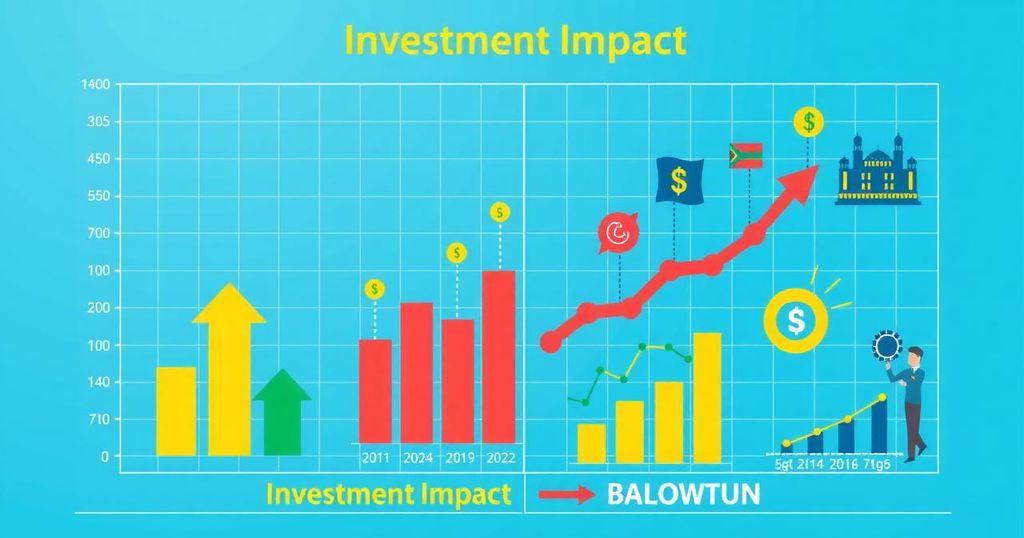A Strategic Blueprint for Transforming Bangladesh’s Economy

This article outlines a blueprint for Bangladesh’s economic transformation, drawing comparisons with Vietnam and Rwanda. It emphasizes the importance of strategic investments, infrastructure development, workforce training, and strong governance. By learning from these countries, Bangladesh can diversify its manufacturing sector, embrace technology, and build resilient institutions to foster substantial economic growth and impact.
The growth of an economy resembles the process of farming—merely scattering seeds is not sufficient for success. Fertile conditions, meticulous planning, and strategic investments are crucial. Countries like Vietnam and Rwanda illustrate that fundamental transformation can occur through smart investments and supportive policies. For Bangladesh to achieve significant advancements, a focus on the volume and allocation of investments is essential.
Vietnam’s evolution from a struggling centrally planned economy into an industrial powerhouse was not coincidental; it stemmed from strategic decisions such as the Đổi Mới reforms initiated in 1986. These reforms facilitated business growth by improving infrastructure, including roads, ports, and the establishment of Special Economic Zones, which became attractive to foreign investors. Bangladesh could emulate this model by broadening its industrial base beyond garments and venturing into sectors such as electronics, IT, and automobile manufacturing.
Infrastructure development has proven vital, with Vietnam investing nearly $120 billion in transportation and power infrastructure from 2010 to 2020. Bangladesh must prioritize tackling issues like traffic congestion, outdated transport systems, and power shortages, which obstruct economic progress. Additionally, human resources play a critical role, requiring investment in education. Vietnam’s significant focus on technology and engineering education created a skilled workforce. Similarly, Bangladesh must invest in vocational and STEM education to realize its potential.
Trade policies and simplified regulations have been instrumental in Vietnam’s economic ascension. By reforming its bureaucracy and regulatory framework, Bangladesh could facilitate the growth of entrepreneurship and attract foreign investments. Furthermore, Rwanda’s post-genocide transformation into one of Africa’s fastest-growing economies underscores the importance of strategic choices in governance and technology adoption. Rwanda’s investments in digital infrastructure and transparency have fostered a thriving business environment, positioning Kigali as a regional tech hub.
Agriculture remains central to Rwanda’s economy, bolstered by investments in irrigation and mechanization to enhance productivity. Despite modernization, agriculture retains significant labor involvement. However, as Rwanda enhances its mechanization and irrigation, Bangladesh could similarly advance its agricultural productivity.
Good governance has been foundational to Rwanda’s success, with effective anti-corruption measures fostering investor confidence. Similar approaches have bolstered transparency in Vietnam, demonstrating a commitment to accountability. Bangladesh could greatly benefit from prioritizing transparent and efficient governance, adopting measures such as digital governance and e-procurement to reduce corruption and enhance public service efficiency.
Bangladesh has made commendable progress, yet there remains potential for expansion. Emulating Vietnam in manufacturing diversification, infrastructure enhancement, and workforce development, along with adopting Rwanda’s digital transformation strategies, could catalyze further progress. By utilizing its talents and resources wisely, Bangladesh can pursue a future characterized by sustainable growth and substantive impact.
In conclusion, Bangladesh stands on the brink of remarkable opportunity for economic transformation. By focusing on strategic investments, infrastructure enhancement, education, and transparent governance, the nation can replicate the successes of Vietnam and Rwanda. Emphasizing smart resource allocation will allow Bangladesh to unlock its full potential, fostering not only growth but also a lasting, impactful economic future.
Original Source: thefinancialexpress.com.bd








